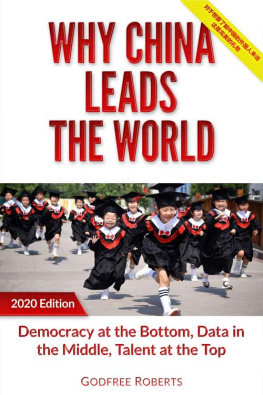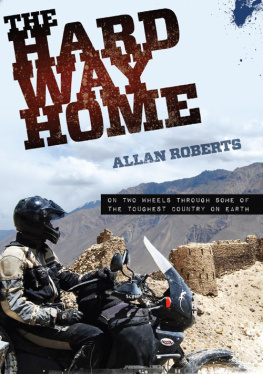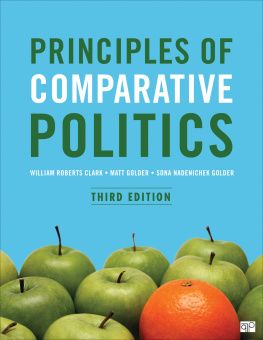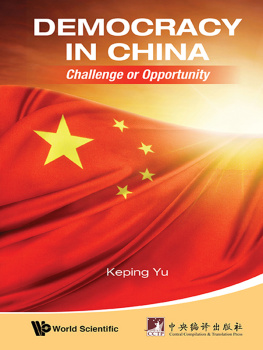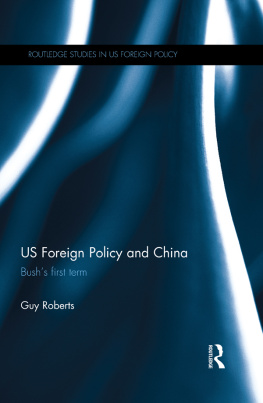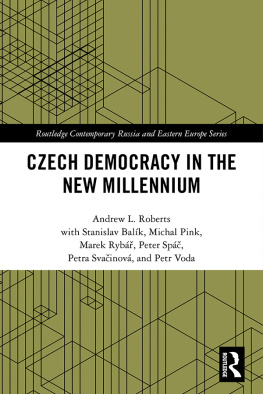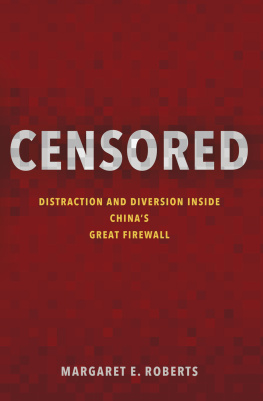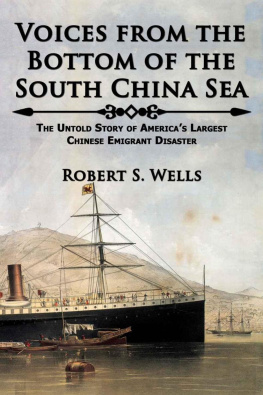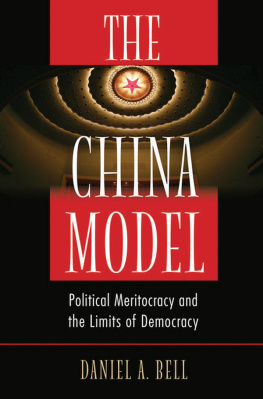Godfree Roberts - Why China Leads the World: Talent at the Top, Data in the Middle, Democracy at the Bottom
Here you can read online Godfree Roberts - Why China Leads the World: Talent at the Top, Data in the Middle, Democracy at the Bottom full text of the book (entire story) in english for free. Download pdf and epub, get meaning, cover and reviews about this ebook. year: 2020, publisher: Oriel Press, genre: Politics. Description of the work, (preface) as well as reviews are available. Best literature library LitArk.com created for fans of good reading and offers a wide selection of genres:
Romance novel
Science fiction
Adventure
Detective
Science
History
Home and family
Prose
Art
Politics
Computer
Non-fiction
Religion
Business
Children
Humor
Choose a favorite category and find really read worthwhile books. Enjoy immersion in the world of imagination, feel the emotions of the characters or learn something new for yourself, make an fascinating discovery.
- Book:Why China Leads the World: Talent at the Top, Data in the Middle, Democracy at the Bottom
- Author:
- Publisher:Oriel Press
- Genre:
- Year:2020
- Rating:4 / 5
- Favourites:Add to favourites
- Your mark:
- 80
- 1
- 2
- 3
- 4
- 5
Why China Leads the World: Talent at the Top, Data in the Middle, Democracy at the Bottom: summary, description and annotation
We offer to read an annotation, description, summary or preface (depends on what the author of the book "Why China Leads the World: Talent at the Top, Data in the Middle, Democracy at the Bottom" wrote himself). If you haven't found the necessary information about the book — write in the comments, we will try to find it.
Godfree Roberts: author's other books
Who wrote Why China Leads the World: Talent at the Top, Data in the Middle, Democracy at the Bottom? Find out the surname, the name of the author of the book and a list of all author's works by series.
Why China Leads the World: Talent at the Top, Data in the Middle, Democracy at the Bottom — read online for free the complete book (whole text) full work
Below is the text of the book, divided by pages. System saving the place of the last page read, allows you to conveniently read the book "Why China Leads the World: Talent at the Top, Data in the Middle, Democracy at the Bottom" online for free, without having to search again every time where you left off. Put a bookmark, and you can go to the page where you finished reading at any time.
Font size:
Interval:
Bookmark:

2021 Godfree Roberts All Rights Reserved.
WHY CHINA LEADS THE WORLD:
Talent at the Top, Data in the Middle, Democracy at the Bottom
No part of this book may be reproduced in any written, electronic, recording, or photocopied form without written permission of the publisher or author except in the case of brief quotations embodied in the critical articles and reviews and pages where permission is expressly granted by the publisher, Oriel Media, or the author, Godfree Roberts.
Copies of this book may be ordered from Ingram Books USA, Australia, Canada, UK, EU, Hong Kong, India, Ireland, New Zealand, Singapore, South Africa, from Amazon and electronic outlets worldwide.
Cover Design by PixelStudio
Editor: Michelle Balfour
Copy Editor: Dianne Giambusso
Publisher: Oriel Media
ISBN: 978-1-7358213-5-1 HARDBACK
978-1-7358213-1-3 PAPERBACK
978-1-7358213-2-0 E-BOOK
Library of Congress Control Number: 2020918248
Chinese history
Chinese governance
Chinese education
Chinese democracy
Chinese environment
Chinese labor, wages, and poverty
Chinese military
Chinese diplomacy
Chinese geopolitics
First Edition
Printed in the United States of America
To
Richard Fong San Chan
Sea Gypsy, Biologist, Banker, Philanthropist, Jn Z .
The size of China s displacement of the world balance is such that the World must find a new balance. It is not possible to pretend that this is just another big player. This is the biggest player in the history of the World . Lee Kwan Yew, Father of Singapore.
ACKNOWLEDGMENTS
I am indebted to my brothers, Tony and Philip, for scrutinizing the claims in this book, to my Quora readers for their criticisms and suggestions, and to Ben Coles of Cascadia Press for guiding its publication. My special thanks go to Ron Unz, the Saker, Patrice Greanville, and Kit Knightly for exposing its ideas to their readers, and my fellow authors at Jeff J. Browns China Writers Group for their support and a ssistance.
Contents
Preface:
Why I Wrote this Boo k
To put the World in order, we must first put the nation in order; to put the nation in order, we must first put the Family in order; to put the Family in order, we must first cultivate our personal lives by setting our hearts right. Confucius
***
H ow did Ch ina do it?
When I was born it was the worlds poorest nation. In 2010 it rescued the global economy from the Great Financial Crisis and again in 2020, after the Coronavirus Crisis. Soon it will be the worlds richest country. How did such a vast, poverty-stricken country transform itself in one human lifetime?
The short answer is planning: Beijing began preparing for world leadership in 1957 and for a coronavirus epidemic in 2003. The long answer is the subject of this book.
It tells how China hired Americans to democratize their government, engineers to run it, used consensus-building and goal-setting to get everyone on the same page, and based their legislation on statistics.
But be warned: describing a numbers-driven society calls for dozens of charts (six in the first chapter alone) and five hundred footnotes. Wonky, yes, but behind the statistics youll encounter a unique civilization, built on principles utterly unlike ours, from which we have much to learn.
I have organized its story into five sections:
- Bad China, Good China discusses the two Chinas: Bad China, filled with resentful slaves exploited by bloodthirsty masters, and Good China, whose people claim to be the happiest on earth.
- Talent at the Top introduces the men who invented their culture, one who reinvented it, and one who will lead it through 2022. They speak to you directly, in extended quotes that reveal their human responses to the immense challenges confronting them.
- Data in the Middle explains how they use local experiments to solve national problems, like poverty, a process they call crossing the river by feeling the stones.
- Democracy at the Bottom explains the Carter Centers role in their democracy and how they democratize both politics and finances.
- Finally, China in the World investigates our image of China: invisible famines, invisible massacres, invisible oppression, invisible pandemics, and invisible human rights violations. The final chapters analyze its huge military, ambitious foreign policy, and its design for international relations.
PART I
Why Does China Lead the World?
Chapter 1
Bad China, Good China
Imagine the impact upon European civilization of a series of Imperial dynasties maintaining the self-same style and significance from Caesar Augustus until the First World War. Now imagine such a civilization existing on the other side of the planetunaware of Greek philosophy, the alphabet, Roman governance, Christianity, feudalism, the Renaissance, the Enlightenment, or democracybut with its own unique cultural and institutional correlates that exceed all of them in intellectual subtlety and material success. Fernand Braudel .
***
D usk was falling over Kunming and I sat in a downtown park watching apple-cheeked children chase each other around the bushes, oblivious to the descending gloom. I recalled my own carefree childhood, before the Age of Fear, when we played and wandered freely, night or day. So, this is China? I said, and made a mental note to query friends about cultural indicators they ha d noticed.
Back in California I asked Larry, an old China hand, who told me about returning to Shenzen after six months in California, chatting with a Chinese man on the plane, and mentioning that he had forgotten to pay his electricity bills. He dreaded returning to a cold, dark flat in midwinter, he said. His companion was puzzled. Utilities are publicly owned, he said, so why would they turn off his electricity? The electricity was on.
Frans was interpreting for a German engineer at a Bosch joint venture in Nanjing whose CEO was a German ex-pat, and whose assistant was a young Chinese woman who had studied at the University of Bamberg. At their final meeting, the CEO requested some German baking mix to be sent with the next shipment, so Frans asked his assistant if she would like something sent from Germany, too. Without hesitating, she responded, I dont know what. There is nothing I need that I cant find in China! For him, said Frans, her response was the essence of the Middle Kingdom and a measure of its distance from the European peninsula.
Peter Man, a Chinese Canadian, first visited his ancestral land in 1981 and recalled the night he treated the hotel staff to dinner. They ended up in a packed canteen that seated two hundred, and where the dishes were simple, tasty, and inexpensive. When he ordered rice, the waiter pointed to a gigantic steaming vat of it where diners were lined up. An unlimited supply of free rice, he thought, only in a communist country! Then he noticed something odd. Standing quietly against the walls were neatly-dressed families holding bowls, and, as he finished his rice and put down the bowl, several of them approached him. The first to arrive was a family of three, whose child was seven or eight years old and whose father politely asked if they were done. I was perplexed, and then my companions explained that the Yellow River had flooded and many peasants had lost their homes, their fields, and produce. Local authorities moved some of the refugees to Changsha, where the local government would resettle them. In the past, this would have been disastrous. Many victims of the flood would have starved to death or been sold into slavery. Instead, they survived by eating free rice and leftovers.
Font size:
Interval:
Bookmark:
Similar books «Why China Leads the World: Talent at the Top, Data in the Middle, Democracy at the Bottom»
Look at similar books to Why China Leads the World: Talent at the Top, Data in the Middle, Democracy at the Bottom. We have selected literature similar in name and meaning in the hope of providing readers with more options to find new, interesting, not yet read works.
Discussion, reviews of the book Why China Leads the World: Talent at the Top, Data in the Middle, Democracy at the Bottom and just readers' own opinions. Leave your comments, write what you think about the work, its meaning or the main characters. Specify what exactly you liked and what you didn't like, and why you think so.

